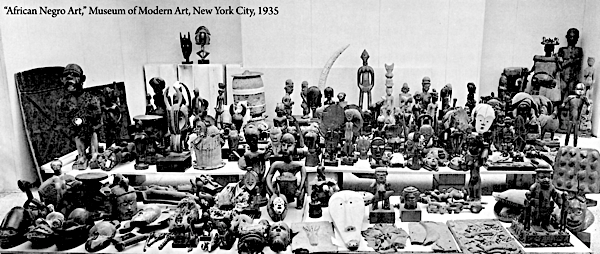Looking at African Things: Exhibiting Africa: Museum Representation of the Continent and Its People

How have Africa and Africans been represented in museums and other cultural institutions in the past, how are they represented today? Knowledge of Africa in Europe, North America as well as in other parts of the world has for the last several centuries been informed, in large part, by a multitude of erroneous, often racist, perceptions of the continent and its people. What are the historical precedents for these views, and why do so many of them persist in the present day? "Exhibiting Africa" examines the social, political, economic and aesthetic ideologies that have shaped interpretations of Africa since the beginning of the nineteenth century in a variety of exhibitionary contexts, including world expositions, natural history museums, art museums, zoological parks, and theme parks.
The course focuses on these museological traditions in three contexts. The first considers the history of museum representation in the West—practices associated with Europe's early encounters with Africa, the systematic collecting and display of African artifacts informed by Darwinian evolutionary theory during nineteenth century, and the "discovery" of African art at the turn of the 20th century. The second context examines the history of museums in Africa—indigenous analogues for the museum, the Western institution introduced during the colonial era, and postcolonial models for the museum that are grounded in the needs of local communities and the agendas of young nation states. The third context offers an opportunity for examining contemporary museum practices for representing culture in the museum as well as thinking about new strategies for the future. Biweekly meetings will include lecture and discussion built around reading assignments and museum/gallery visits. Towards the middle of the semester, the class will visit the African galleries at the Detroit Institute of Arts as well as a private collection of African art.
Students will write two short papers; one that documents an "exhibitionary event" (e.g., past exhibition, worlds fair, theme park attraction, etc.), and another that critiques a current exhibition dealing with Africa.
There will be a modest co-payment for the museum and private collection visit to Detroit.
No prerequisites are required, however, some knowledge of Africa and/or colonial and post-colonial cultural theory is recommended.
Textbooks/Other Materials: No textbook is required. Weekly readings will be drawn from a set of articles, essays and book excerpts available on a dedicated CTools site.
HISTART Categories for concentration distributions: B. Sub-Saharan Africa, 3. Early Modern, 4. Modern and Contemporary.